Are you looking to secure a psychiatric evaluation appointment but don't know where to start? Crafting a well-structured letter can be the key to expressing your needs and ensuring you receive the attention you deserve. In this article, we will guide you through the essential components of a compelling letter template, tailored specifically for requesting a psychiatric evaluation. So, let's dive in and explore how to articulate your thoughts effectively!
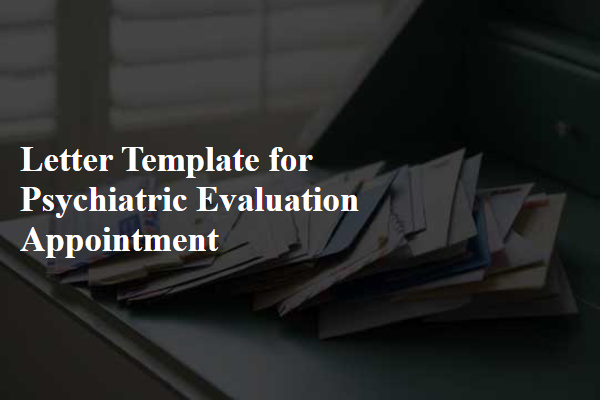
Patient Information
During a psychiatric evaluation appointment, accurate patient information is essential for effective diagnosis and treatment planning. This includes full name, date of birth (month, day, year), address (including city, state, and zip code), contact number, and emergency contact details. It is crucial to document medical history, such as previous mental health diagnoses, medications (including dosages and duration), and any history of hospitalizations or therapy. Additionally, psychosocial factors like occupation, education, relationships, and stressful life events (such as trauma or loss) contribute significantly to the assessment process. The clinician may also inquire about substance use history, family mental health background, and current symptoms, including duration, intensity, and impact on daily functioning. This comprehensive data collection establishes a foundation for tailored treatment strategies and interventions.
Appointment Details
During a psychiatric evaluation appointment, essential information such as the date, time, and location becomes critical for both the patient and healthcare provider. Typically, this appointment will take place at a psychiatric facility or mental health clinic, where licensed professionals, like psychiatrists or clinical psychologists, will conduct a thorough assessment. The evaluation aims to gather information on the patient's mental health history, current concerns, and any underlying conditions, such as depression, anxiety, or bipolar disorder. Standardized assessments might also be employed to determine the presence of specific symptoms, guiding subsequent treatment planning. A well-prepared patient may bring relevant medical records, a list of medications, and questions regarding their mental health journey to ensure a productive session.
Purpose of Evaluation
A psychiatric evaluation appointment is essential for assessing an individual's mental health status, identifying potential conditions, and establishing a tailored treatment plan. Professionals, like psychologists and psychiatrists, conduct comprehensive interviews to gather crucial information about symptoms, personal history, and social factors. This evaluation, often held in clinical settings such as hospitals or mental health facilities, typically spans 60 to 90 minutes. Evaluators may utilize standardized assessments, questionnaires, and behavioral observations to gain insights into emotional, cognitive, and behavioral functioning. Comprehensive findings from this process guide future therapeutic interventions or medication management, aiming for improved mental well-being.
Confidentiality Assurance
A psychiatric evaluation appointment, essential for assessing mental health conditions, involves a comprehensive assessment by a licensed psychiatrist. Confidentiality Assurance stands as a critical component, ensuring patient privacy in compliance with HIPAA regulations. Patients need to understand that all information disclosed during the evaluation remains confidential, with exceptions for safety concerns, such as risk of harm to self or others. This process typically takes place in a secure environment, such as a private office at a mental health facility, fostering a safe atmosphere for open communication. The evaluation can encompass standardized assessment tools, clinical interviews, and history-taking, all meticulously documented to support accurate diagnosis and treatment planning.
Contact Information
A psychiatric evaluation appointment gathers vital information to assess mental health conditions. Essential contact information includes full name, date of birth, and mailing address (including city, state, and zip code) to ensure accurate patient identification. Phone numbers, especially mobile (for immediate communication), and email addresses serve to enhance connectivity regarding appointment confirmations or rescheduling requirements. Insurance details, such as provider name and policy number, ensure coverage verification for mental health services. Emergency contact information should include a name and phone number for a responsible individual who can provide assistance if necessary during the evaluation process. Providing complete and accurate information facilitates a smoother experience in obtaining mental health support.
Letter Template For Psychiatric Evaluation Appointment Samples
Letter template of inquiry about psychiatric evaluation appointment availability
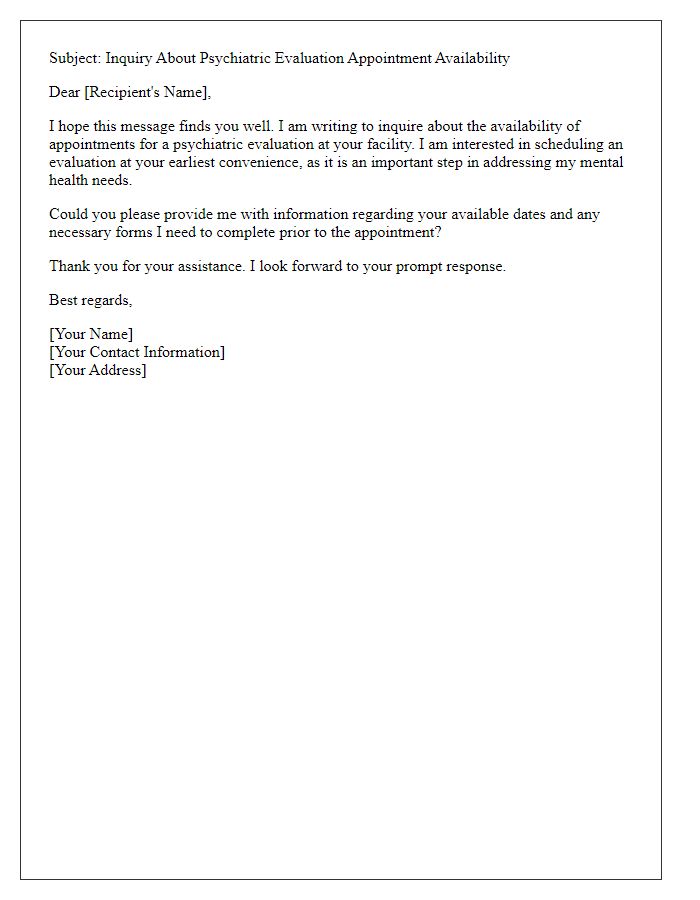

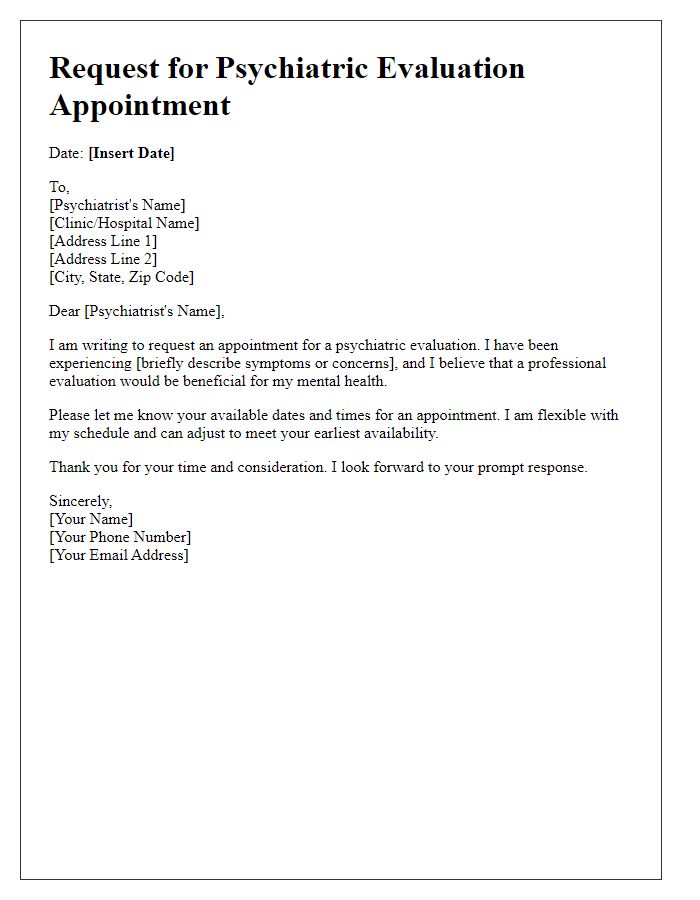
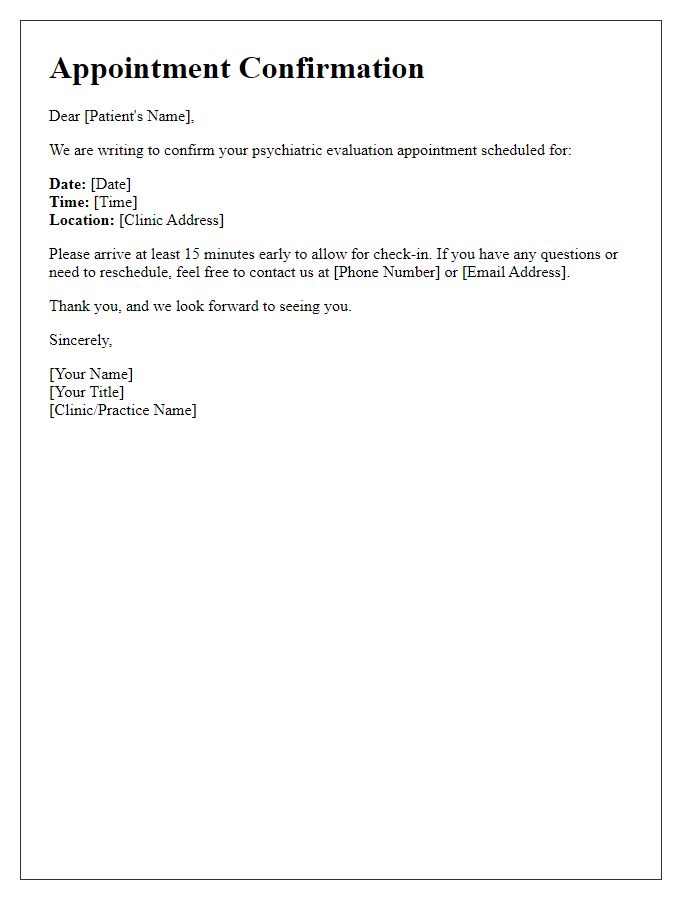
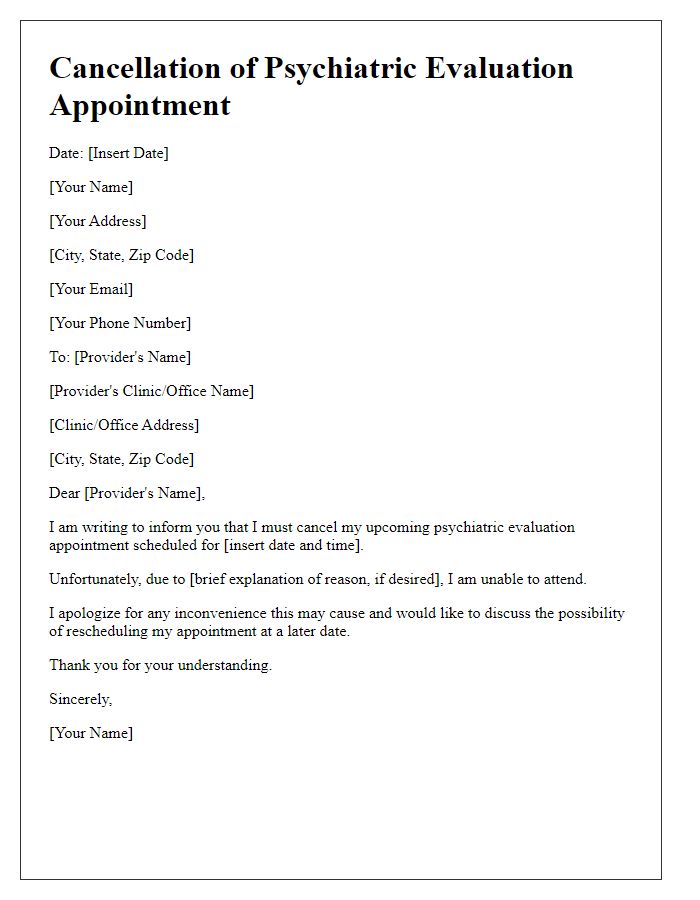
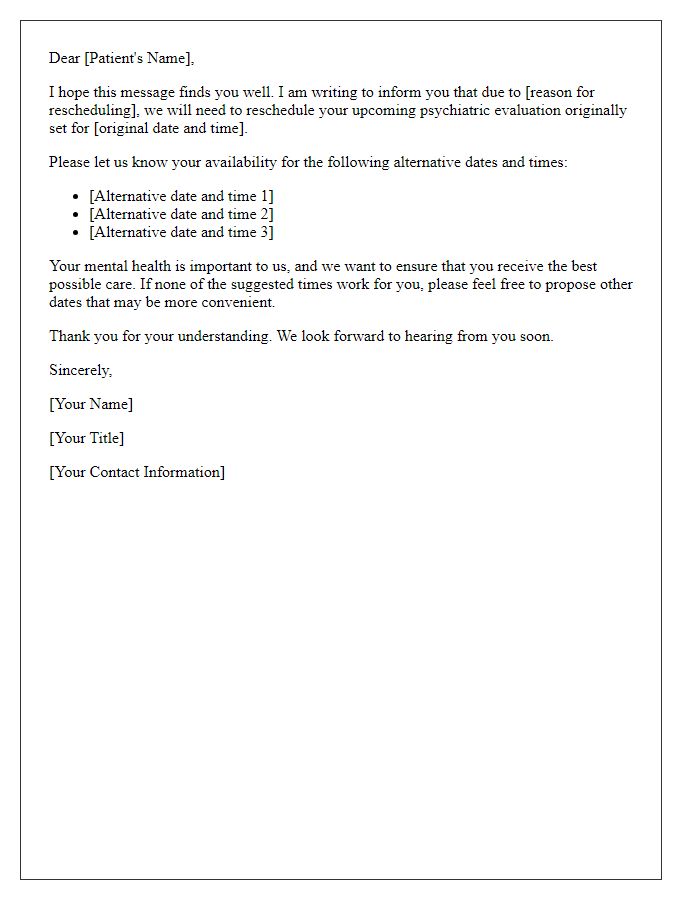
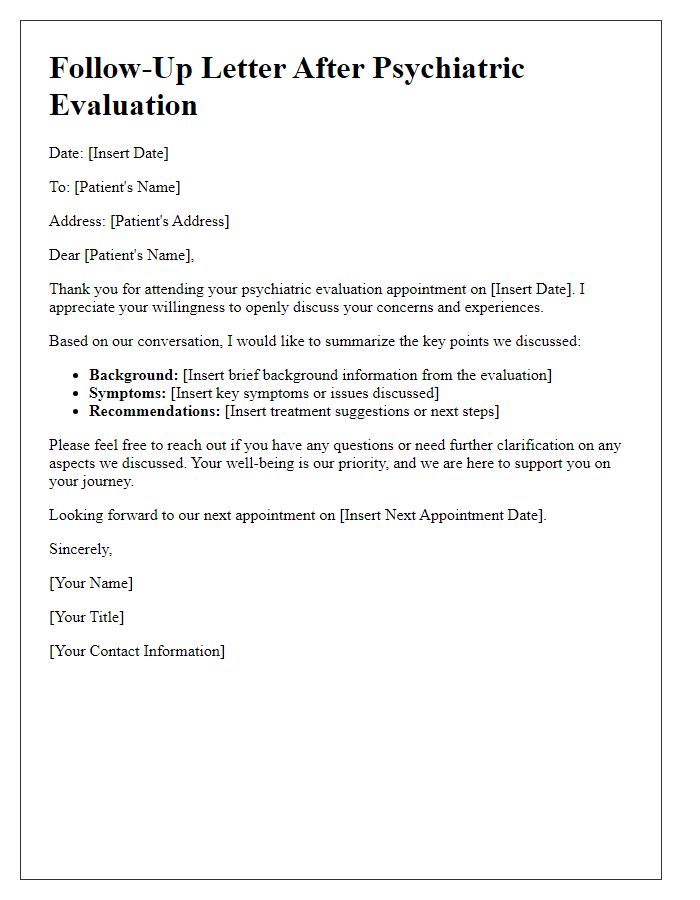
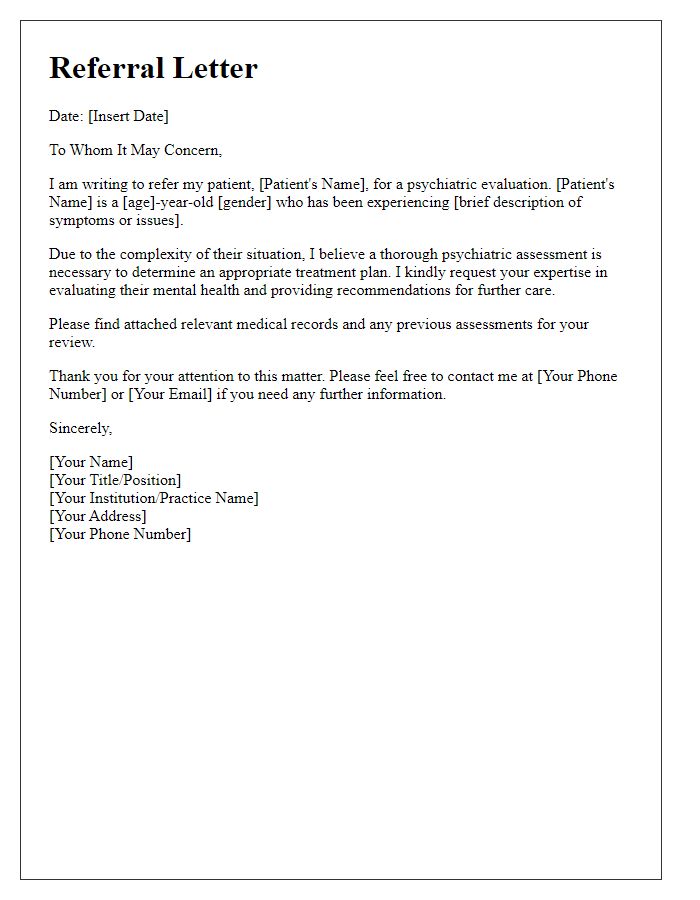
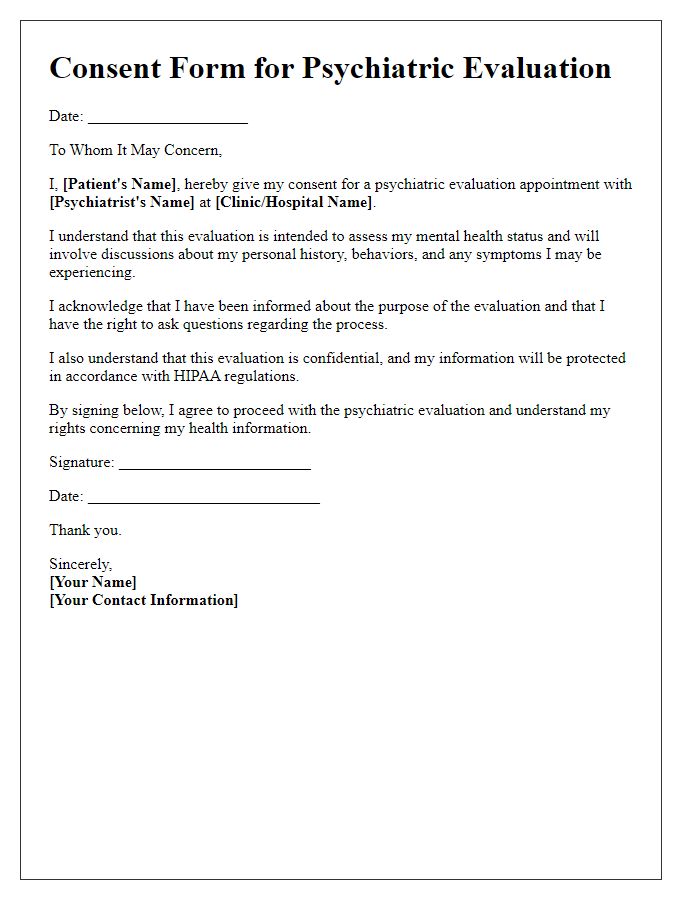
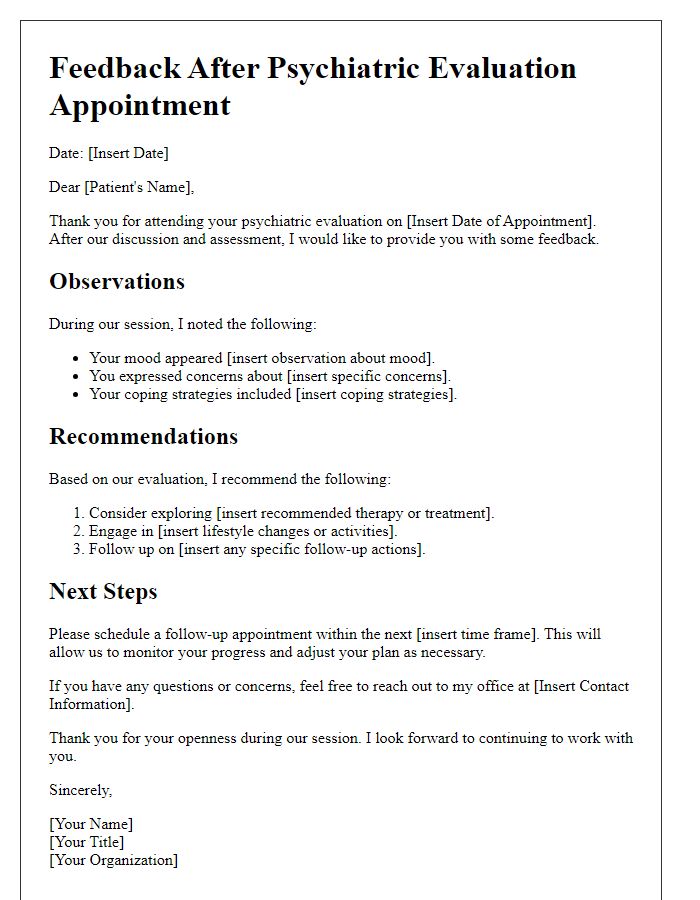
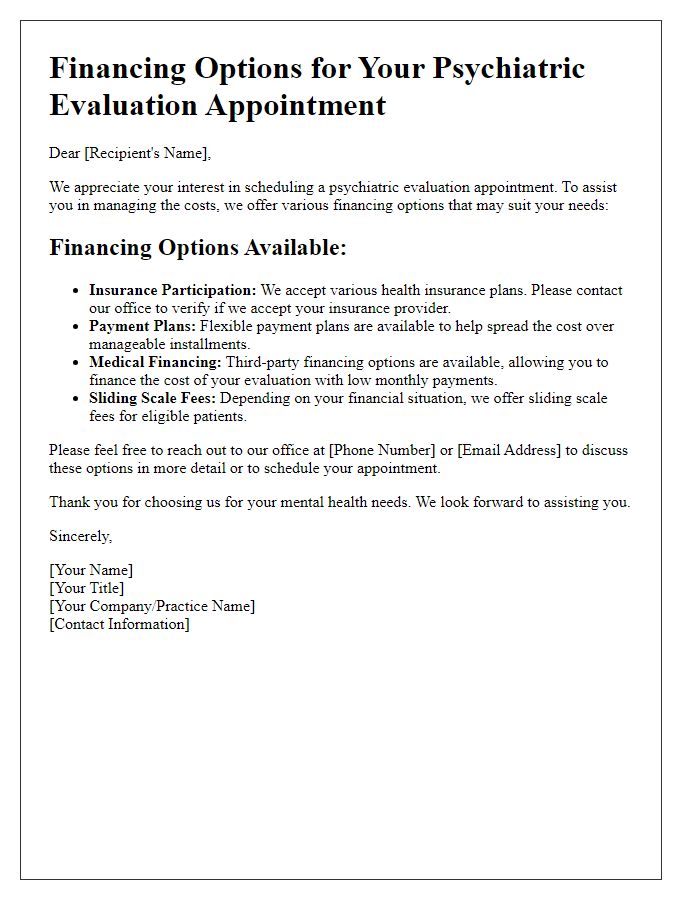


Comments